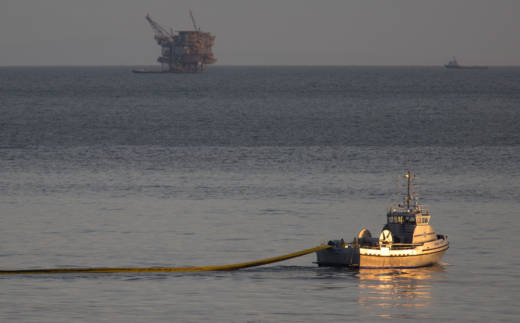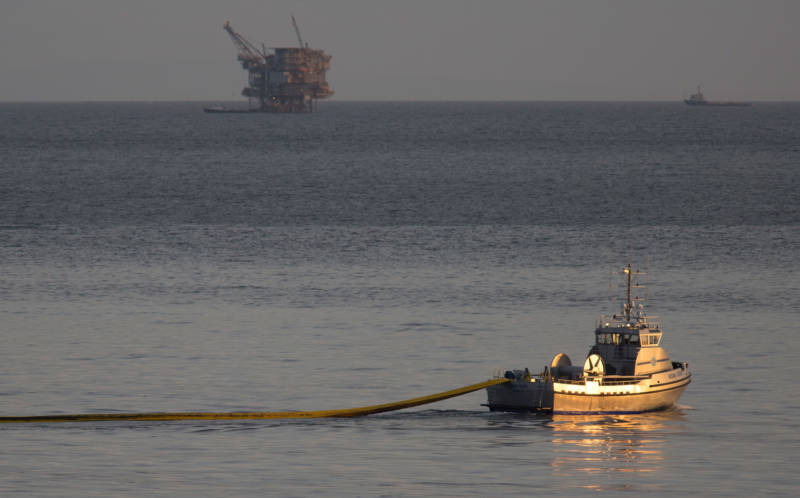Venoco had been seeking to restructure as recently as last summer to eliminate $1 billion of debt, but said at the time that low price oil prices and the Line 901 shutdown were serious problems.
The State Lands Commission said the relinquishment of claims to the leases effectively ends commercial oil and gas production in state waters at that location in the Santa Barbara Channel and leaves about 85 million barrels of oil in the ground. New offshore oil and gas leases are prohibited by California's Coastal Sanctuary Act.
The decommissioning of Platform Holly is a "landmark in the evolution of California's energy portfolio," Lt. Gov. Gavin Newsom, the commission's chairman, said in a statement.
"As President Trump voices his determination to expand oil drilling and twentieth-century energy policies, California is pioneering the sustainable alternative that protects our coastlines and environment while gaining a strong foothold in the future energy and global economy," it said.
Platform Holly stands a few miles off the coast of south Santa Barbara County, part of a series of oil platforms in waters between the mainland and the Channel Islands.
The decommissioning decision was celebrated by people who have been working to get rid of offshore drilling since the 1969 blowout of a Union Oil Co. platform in the Santa Barbara Channel fouled 30 miles of beaches, killed thousands of birds and other sea life, and gave rise to the American environmental movement.
"This marks the end of an era of offshore oil production in this location, and we will never again go back," said state Sen. Hannah-Beth Jackson, D-Santa Barbara.
The commission said it will develop a plan for the costly process of plugging 32 wells in the South Ellwood Field, removing Platform Holly and decommissioning the Goleta Beach Pier, a process expected to take three years.
Venoco will remain responsible for securing and maintaining the facilities at its own cost until May 1, when the company will be temporarily reimbursed by the commission until a third party is hired. The commission said it will involve itself in the bankruptcy process and submit claims for costs against Venoco.
The commission noted that Venoco generated about $160 million in state revenue from royalties and rent without any significant spills on state property during the past 20 years.

